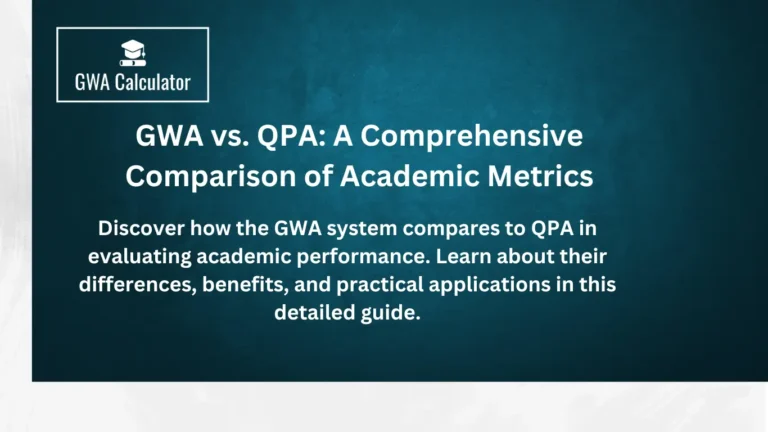How to Manage Credit-Weighted Subjects for Better GWA Results
Achieving an excellent Grade Weighted Average (GWA) is the dream of every student striving for academic success. However, managing credit-weighted subjects can be challenging without a strategic approach. This guide will walk you through actionable tips and strategies to help you excel in credit-weighted subjects and improve your GWA effectively.
Understanding Credit-Weighted Subjects
Credit-weighted subjects contribute more significantly to your overall GWA because of their higher credit value. For instance, a 3-unit course has a greater impact on your GWA compared to a 1-unit course. This means performing well in these subjects is crucial for maintaining a strong academic standing.
Why They Matter:
- Higher credit subjects have a larger influence on your academic performance.
- Excelling in them can offset lower grades in other courses.
Strategies to Excel in Credit-Weighted Subjects
1. Prioritize High-Credit Subjects
Focus your time and energy on subjects with higher credit values since they weigh more in your GWA. Allocate additional study hours and ensure you grasp core concepts thoroughly.
Actionable Tip: Create a study schedule that prioritizes credit-weighted subjects, dedicating more time to these courses.
2. Understand the Grading System
Familiarize yourself with your institution’s grading system and how GWA is calculated. Knowing the weight of each subject helps you strategize and focus your efforts where they matter most.
Real-World Example: If a subject carries 5 credits, getting an A in it will significantly boost your GWA compared to a 2-credit subject.
3. Develop a Study Plan
Organize your academic calendar to ensure all deadlines, exams, and assessments are planned. Break your study sessions into manageable chunks to avoid burnout.
Pro Tip: Use tools like Google Calendar or study planners to keep track of your academic responsibilities.
4. Leverage Available Resources
Utilize available resources such as textbooks, online materials, and tutoring services. Don’t hesitate to ask for help from professors or peers when needed.
Example: Join study groups for high-credit courses to deepen your understanding and clarify doubts.
5. Master Time Management
Time management is crucial when juggling multiple subjects. Allocate your time wisely to balance assignments, projects, and self-study for all courses.
Actionable Tip: Apply the Pomodoro technique to maintain focus and productivity during study sessions.
6. Seek Feedback and Continuous Improvement
Regularly review your progress in credit-weighted subjects. Seek feedback from professors and classmates to identify areas of improvement.
Example: After every exam, analyze your mistakes and create a plan to address weak areas.
Additional Tips for Success
- Maintain Consistency: Avoid cramming by reviewing lessons regularly.
- Stay Healthy: Prioritize sleep, nutrition, and exercise to keep your mind sharp.
- Stay Organized: Keep all notes, assignments, and resources in one place for easy access.
Conclusion
Managing credit-weighted subjects effectively is essential for achieving academic success. By prioritizing high-credit courses, mastering time management, and leveraging available resources, you can significantly improve your GWA.
Remember, consistency and effort are key to long-term success. Start implementing these strategies today to unlock your academic potential!







